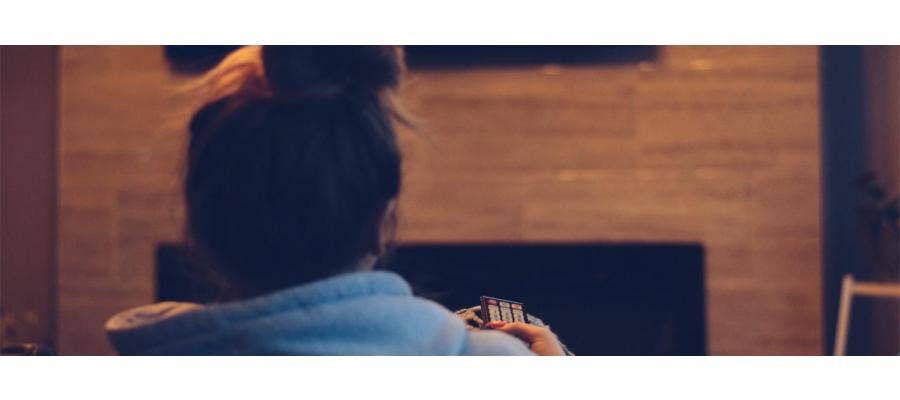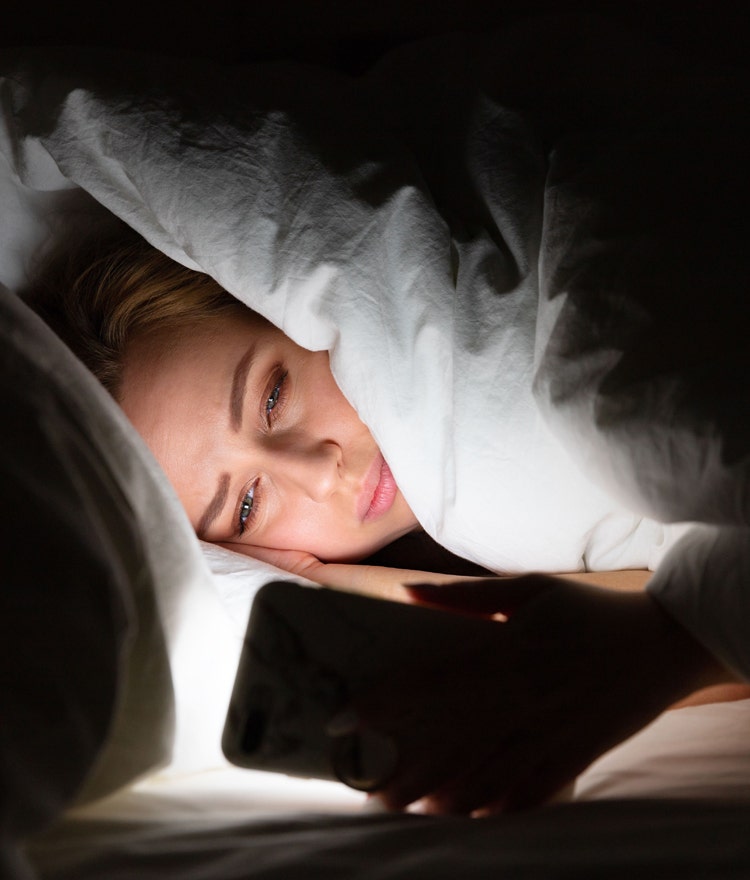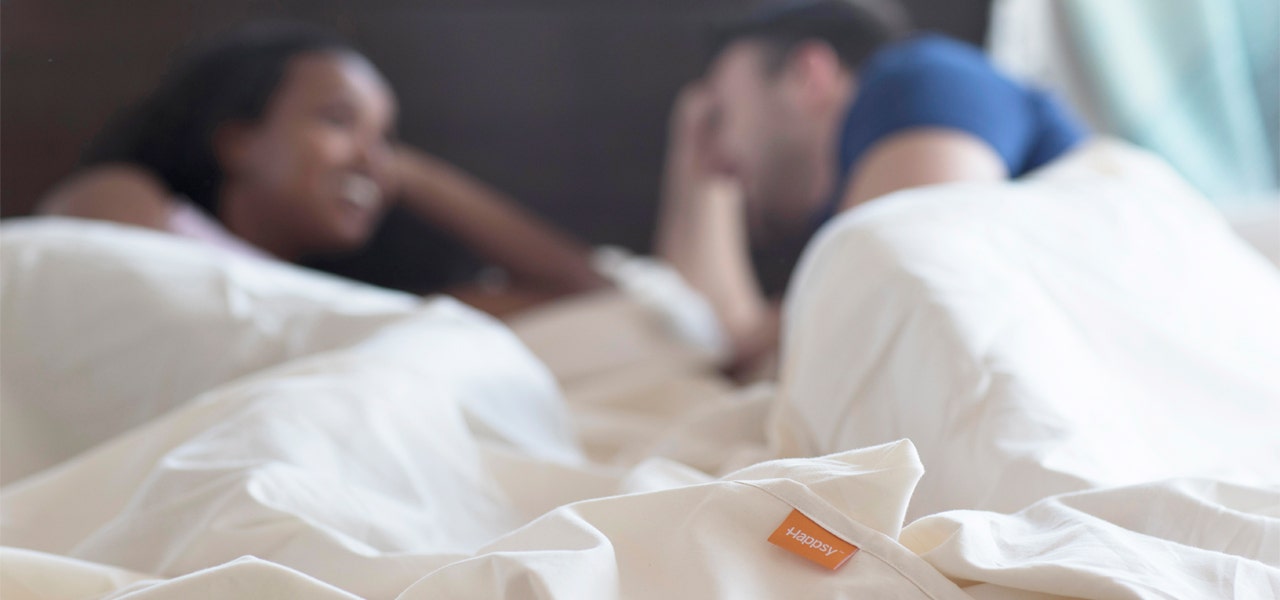
If you’re reading this, chances are you’re on a device that emits blue light right now. But, blue light is seriously bad for your sleep and sleep is, well, seriously important for your wellbeing. Don’t panic, you can still enjoy your screen time without tanking your sleep, but you may want to be a lot more mindful of when and how you’re doing it.
Ever fall asleep on the couch mid-Netflix binge? That’s only, oh, everyone, right? And, most of us are guilty of the mindless scroll through our newsfeed after climbing into bed. Those screens sure can suck us in when our brains are tired.
Unfortunately, blue light before bedtime is probably affecting your sleep more than you realize. Let’s break down all things blue light and the steps you can take to help yourself unwind in a healthy way.
What is blue light?
You're probably pretty family with the concept of UV rays and X rays. They are both examples of the electromagnetic waves that flow around us throughout our lives. Blue light is another example of an electromagnetic energy that we experience in our daily lives and, actually, it is only slightly less powerful than UV rays. Blue light, though, is visible to the human eye.
Did you know that the visible light spectrum is actually a whole rainbow of colors? No, literally! The visible light spectrum includes the full ROY G BIV acronym you learned in elementary school. However as screens, which emit blue light, have become a much more dominant part of our lives, the effects of blue light have been getting a lot more attention.
Is blue light just a screen time thing?


We see advertisements for blue light glasses and dimming features for laptops and phones to help protect our eyes from blue light. We’re pretty familiar with the idea that TVs, gaming systems, e-readers, etc. are blue light sources. So, you may only associate blue light exposure with screen time.
However, LED and fluorescent lights are other significant blue light sources. And, the truth is we get the most blue light exposure from the sun! This exposure from sunlight is actually healthy for us. It helps to:
- Make us more alert
- Improve concentration
- Regulate our circadian rhythm (our wake and sleep cycle)
- Boost our mood
But, too much blue light can cause issues with your sleep cycle, which is why all of that scrolling and TV intake at bedtime can get in the way of catching some Z’s.
Blue light and sleep: the basics
The reason blue light affects sleep is rather simple. As mentioned above, blue light helps us feel awake and alert. When we experience darkness, our bodies create melatonin (yes, the same thing that is in all those natural sleep aids). If we aren’t in darker light, however, our bodies don’t know to create the melatonin we need to wind down for the night.
Complicating matters – and this one isn’t the blue light’s fault – a lot of the activities we enjoy on screens are pretty fun. That’s why we do them, right? But, watching a suspenseful show right before you fall asleep can get your mind spinning … instead of quieting it down. Essentially, if you’re reaching for your phone or turning on the TV after you get into bed, you’re inviting insomnia right in to disrupt your sleep patterns.
Cutting back on blue light exposure
Don’t worry, we aren’t saying you should skip your Netflix show or not scroll your newsfeed to laugh at a few videos. But stopping the blue light exposure a little earlier can make a big difference. You can do so by:
- Dimming your lighting at nighttime
- Using blue light glasses to protect your eyes
- Turning off devices such as phones, laptops, and TVs at least an hour before bed
- If you can’t turn off devices, dim them/use special blue light settings
- Download a blue light filtering app that helps limit the blue light exposure to your eyes
- Setting an alarm to remind you to do one, if not, all of the above at least an hour before bed time
How to unwind without the effects of blue light


We all have likely experienced the headache from staring at screens too long, and that’s no way to go to bed. There are healthier ways to settle in for the night. If you’re guilty of reaching for your phone in bed, try these options instead:
- Take a bath or shower right before bed. Bonus points if you just cleaned your sheets. Clean you and clean sheets? Solid nights rest. Extra bonus points if they are Happsy sheets!
- Grab a good book and read a chapter before lights out. If reading isn’t your thing, you can listen to audiobooks through apps like Audible.
- Listen to music. You can listen to music before bed to help you unwind and relax. Just try to go for a mellow playlist.
- Try some light stretching/gentle yoga. This, along with deep breathing exercises, before bed can help bring you into a calm state. Check out our yoga and sleep post here.
We can’t escape blue light exposure. And, we actually need it for our overall health and wellbeing. However, by better understanding it, we can harness its power earlier in the day and avoid the negative effects of blue light on sleep. Still feeling panicky about the thought of limiting your Netflix binging? We have some more advice about TV and sleep right here for you.
